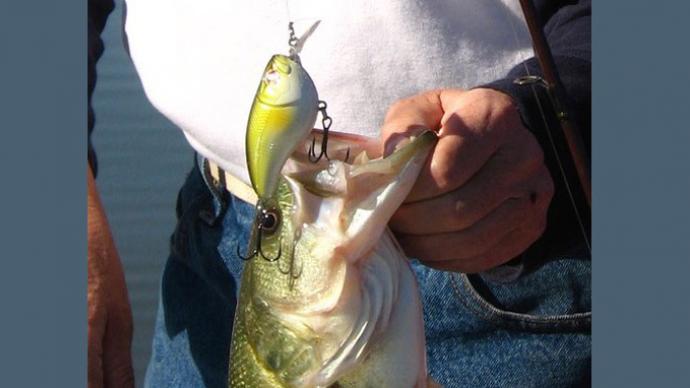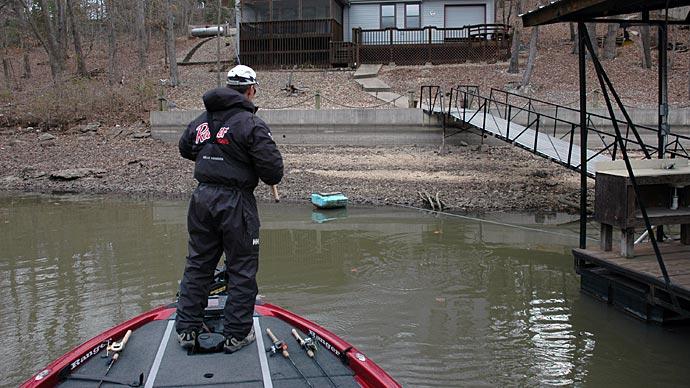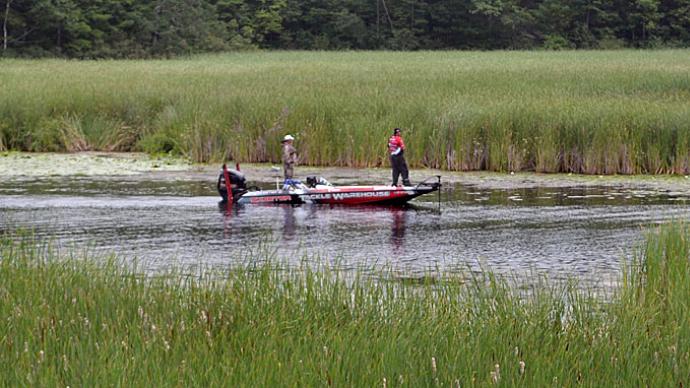The U.S. Fish and Wildlife Service (FWS) has given top priority for 2001 reverted Sportfish Restoration grants to four studies that focus on a virus disease that kills largemouth bass.According to B.A.S.S. this announcement is very good news. Research money is now finally available for the study of Largemouth Bass Virus (LMBV), the mysterious disease that has killed thousands of bass --- mostly across the South --- since it first was diagnosed in 1995.
"Largemouth bass is the nation's most popular sportfish and quality fisheries are maintained almost entirely by natural reproduction. We urged the FWS to give the highest funding priority to LMBV, and it did," said Bruce Shupp, B.A.S.S.' National Conservation Director. "We're really happy about this."
During the next year, $415,390 from reverted state grants will be used for four projects, ranging from developing and validating non-lethal sampling techniques to improving detection of the virus in infected fish and investigating how the stress of being caught might relate to contraction of LMBV.
Through excise taxes on fishing tackle and related gear, anglers contribute about $300 million annually to the Sportfish Restoration Fund. FWS then distributes the money to the states to use to improve their fisheries in the nation's best user-pays/user-benefits program. Money not used by the states reverts to FWS, for distribution to individual research projects that are submitted to FWS on a competitive basis.
This year, state and federal agencies and universities nationwide proposed 168 projects for the $1,785,943 available funding. Twenty-seven studies were selected by a seven-member panel, and four were specifically for LMBV research.
Resource managers praise B.A.S.S. for helping to obtain money for the four LMBV projects, as well as its overall guidance during the past two years. During two B.A.S.S. sponsored meetings in 2000 and 2001, B.A.S.S. has brought together fish disease experts to discuss the latest information regarding the disease. Meeting attendees identified research needs and B.A.S.S. publicized them, as well as disseminated the most up-to-date and accurate news regarding the disease to state fisheries agencies and print and electronic media.
"B.A.S.S. has taken the leadership to ensure that the right information is getting into everyone's hands," said Phil Durocher, Fisheries Chief for the Texas Department of Wildlife and Fisheries. "Typically, the states are out there doing their own things. On this issue, B.A.S.S. brought us together to share information and make sure that we're not repeating ourselves trying to find answers. We appreciate it --- a lot."
Fisheries scientist Dr. Hal Schramm added, "B.A.S.S. recognized a problem and helped us build a foundation where none existed. "Largemouth Bass Virus disease is moving out of the South and heading west and north," said the researcher at Mississippi State University. "It stands to impact the majority of the nation. What researchers are doing because of B.A.S.S.' leadership will serve the nation and serve it well."
Sportfish Restoration Fund money will be used to fund projects at Auburn, Louisiana State, and Mississippi State universities, as well as at FWS's Warm Springs Regional Fisheries Center. But many more than just these four will be involved in the research.
Schramm, for example, will work with associates from Auburn, Alabama Department of Game and Fish, Mississippi Department of Wildlife, Fisheries, and Parks, and Oklahoma Department of Wildlife Conservation. They will attempt to discover if a link exists between stress related to tournament handling and LMBV.
"Does that stress make it more likely that a bass will be infected? Or does it facilitate turning the infection in disease? We hope to find some answers," the scientist said.
And the opportunity to find those answers has been made possible by B.A.S.S., Schramm emphasized. "We still don't know how big a problem LMBV is going to be," he concluded. "But B.A.S.S. put us on alert and helped us recognize a potentially dangerous situation. Now we have a lot more trained eyes out there looking at the problem and trying to find ways to expedite solutions."



